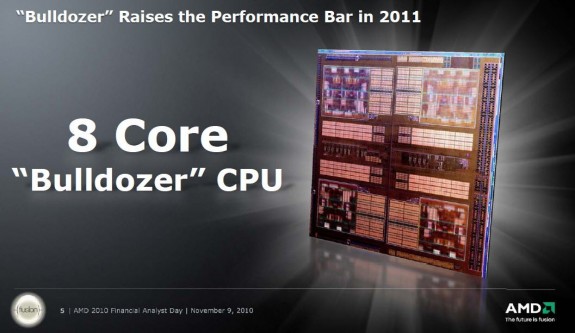-
Tips for becoming a good boxer - November 6, 2020
-
7 expert tips for making your hens night a memorable one - November 6, 2020
-
5 reasons to host your Christmas party on a cruise boat - November 6, 2020
-
What to do when you’re charged with a crime - November 6, 2020
-
Should you get one or multiple dogs? Here’s all you need to know - November 3, 2020
-
A Guide: How to Build Your Very Own Magic Mirror - February 14, 2019
-
Our Top Inspirational Baseball Stars - November 24, 2018
-
Five Tech Tools That Will Help You Turn Your Blog into a Business - November 24, 2018
-
How to Indulge on Vacation without Expanding Your Waist - November 9, 2018
-
5 Strategies for Businesses to Appeal to Today’s Increasingly Mobile-Crazed Customers - November 9, 2018
AMD sued over misleading core counts for Bulldozer processors
Do any of you think that AMD misrepresented the core count on its Bulldozer CPU?
Advertisement
A class action lawsuit has been filed against chip-maker AMD for allegedly tricking consumers into buying its Bulldozer processors by overstating the number of cores contained in the chips. Each core, as it turns out, is equivalent to half of a module, and these cores can not operate independently from each other.
The average computer buyer might not have any idea what the difference is between cores that share a floating point unit and cores that don’t, and this may lead them to believe they’re buying a true, eight-core CPU when they aren’t. The class action lawsuit arrives on the back of high benchmark scores for AMD’s R9 Fury X and the upcoming release of its Zen architecture. The lawsuit from San Jose’s district court claims that while a Bulldozer processor may offer eight cores, these only function as four.
According to the lawsuit, AMD intentionally advertised that the chips in question were eight – but in reality it was actually 50% of that! The suit alleges AMD built the Bulldozer processors by stripping away components from two cores and combining what was left to make a single “module”.
AMD is now being sued for damages, including statutory and punitive damages, pre and post judgment interest and litigation expenses along with other injunctive and declaratory relief as is deemed reasonable. He charged AMD with violating the Consumer Legal Remedies Act and the Unfair Competition Law of the state, false advertising, breach of express warrant, negligent misrepresentation and unjust enrichment.
The lawsuit (via: Ars Technica) goes on to claim that due to this design, each core is not capable of working independently, which apparently results in performance degradation.
Advertisement
Since AMD failed to disclose accurate specifications for Bulldozer, Mr. Dickey argued that thousands of buyers were deceived into buying a product that was unable to perform the way it was promised.




























